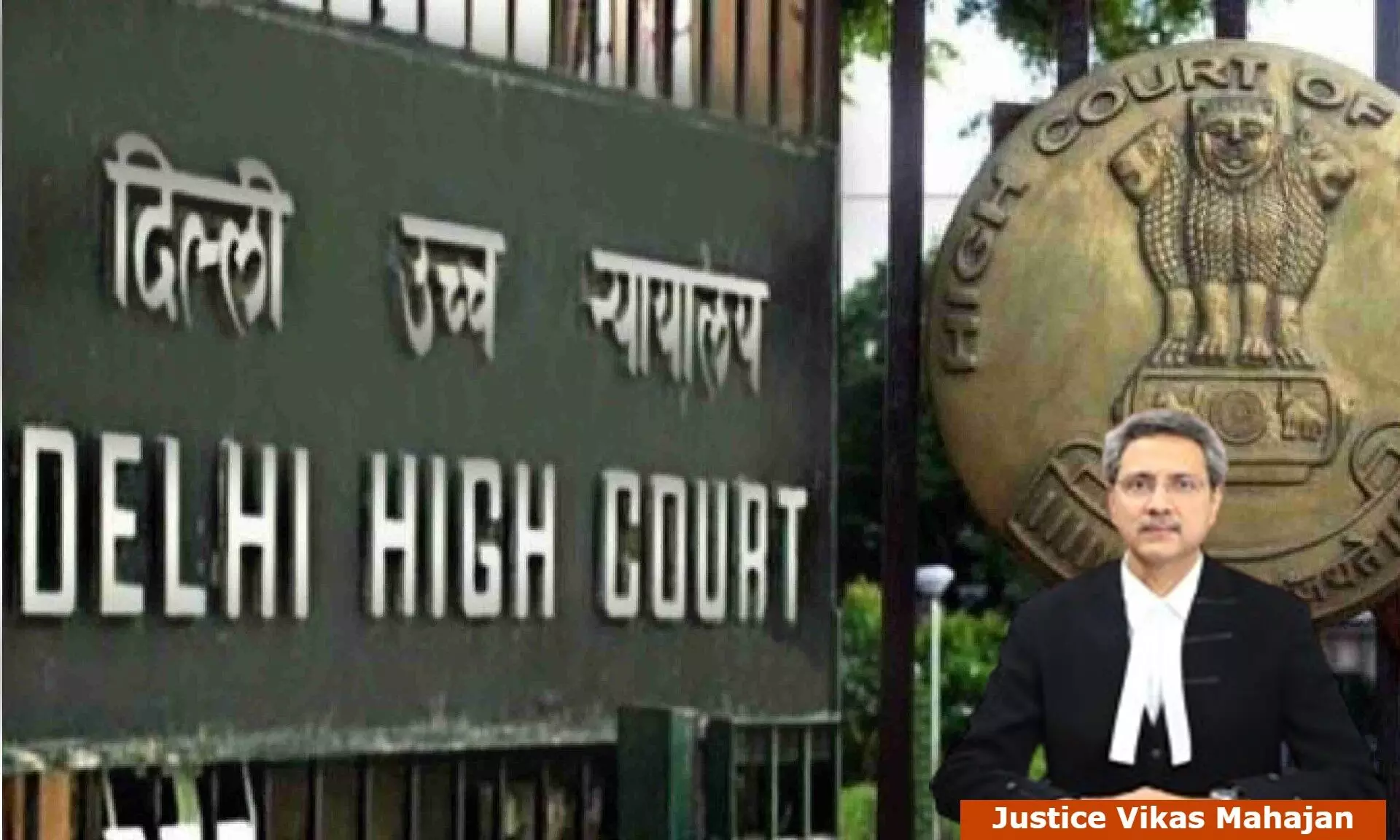
Arrest Warrant U/S 73 CrPC Can Be Issued Only For Production Of Accused Before Court & Not Before Police To Aid Investigation: Delhi HC
 |
|The Delhi High Court observed that a warrant of arrest under Section 73 of the Code of Criminal Procedure (CrPC) can be issued by courts solely for the production of the accused before the court, not for aiding police investigation.
In that context, the Bench of Justice Vikas Mahajan observed that, "warrant of arrest under Section 73 of the Code could be issued by the courts solely for the production of accused before the court and not for his production before the police in aid of investigation... the very purpose for which the investigating officer approached the learned Trial Court for the issuance of non-bailable warrants is contrary to mandate of law."
A case was registered against the petitioner/accused under Sections 354(B), 506, and 509 of the IPC. The Investigating Officer (IO) issued notices under Section 41A CrPC on 03.02.2024 and 05.02.2024, asking the petitioner to appear on 04.02.2024 and 06.02.2024, respectively. These notices were served to the petitioner's mother.
On 06.02.2024, the IO filed an application before the Metropolitan Magistrate for a non-bailable warrant (NBW) against the petitioner, alleging he was avoiding the investigation. The Magistrate issued the NBW on the same day with a brief order.
Fearing arrest, the petitioner filed an anticipatory bail application before the Sessions Court. Meanwhile, on 14.02.2024, the IO requested the Metropolitan Magistrate to initiate proceedings under Section 82 CrPC against the petitioner. The Magistrate allowed this application the same day with a brief order. However, the Magistrate stayed the Section 82 CrPC process on 23.02.2024, only to vacate this stay on 26.04.2024 upon another application by the IO.
On 31.05.2024, the Magistrate declared the petitioner an absconder. Subsequently, on 28.06.2024, the Magistrate issued warrants for the attachment of the petitioner's moveable property under Section 83 CrPC.
The High Court addressed the challenge against the Magistrate's order dated 26.04.2024, which canceled the process under Section 82 CrPC, but also reviewed the legality of other orders issued by the Magistrate. The Court exercised its inherent power under Section 482 CrPC to quash any proceedings that constituted an abuse of the court's process, stating, “...this Court while exercising its inherent powers under the said provisions cannot shut its eyes if it finds that certain orders passed under the Code, albeit not specifically challenged, tantamount to abuse of process of court.”
The High Court quashed the Magistrate's order dated 06.02.2024, which issued a non-bailable warrant (NBW) against the petitioner. The Court emphasized that under Section 73 CrPC, a warrant of arrest is meant solely for producing the accused before the court, not the police for investigation. Citing the Supreme Court's decision in Inder Mohan Goswami & Anr. vs. State of Uttaranchal & Ors., the Court noted that NBWs should only be issued to bring a person to court when a summons or bailable warrant is unlikely to suffice. The Court found that the investigating officer's application for the NBW was contrary to the mandate of law and the Magistrate issued the NBW without issuing a summons first and without proper examination of the facts.
Regarding the issuance of a proclamation under Section 82 CrPC, the Court noted that the Magistrate failed to record reasons for believing that the petitioner was absconding, which is a requirement for issuing a proclamation. The Court held that the Magistrate's order was issued without applying proper judicial mind and thus quashed the order dated 14.02.2024. Consequently, the Court also set aside subsequent proceedings, including the order dated 31.05.2024, declaring the petitioner an absconder, and the order dated 28.06.2024, issuing a warrant of attachment for the petitioner's movable property.
The Court addressed the complainant's argument that the issuance of an NBW should prevent the granting of anticipatory bail. Since the Court quashed the NBW, it ruled there was no bar to granting anticipatory bail. The Court asserted that it is the statutory right of the accused to seek anticipatory bail, a right that cannot be nullified by the investigating officer's actions. The Court stated that the petitioner's right to seek anticipatory bail “...cannot be set at naught by the investigating officer by procuring non-bailable warrants against an accused immediately within few days after the registration of a criminal case when the investigation is at a nascent stage and the accused hardly had sufficient time to seek professional advice and apply for pre-arrest bail.”
The Court noted the investigating officer's notices under Section 41A CrPC were served to the petitioner's mother, giving the petitioner insufficient time to appear. On the same day the petitioner was supposed to appear (06.02.2024), the IO obtained the NBW, which raised concerns about the officer's fairness. Consequently, the Court granted anticipatory bail to the petitioner-accused.
Cause Title: Lakshay Jaiswal vs State (NCT of Delhi) & Anr. (Neutral Citation: 2024: DHC: 5287)
Click here to read/download the Judgment